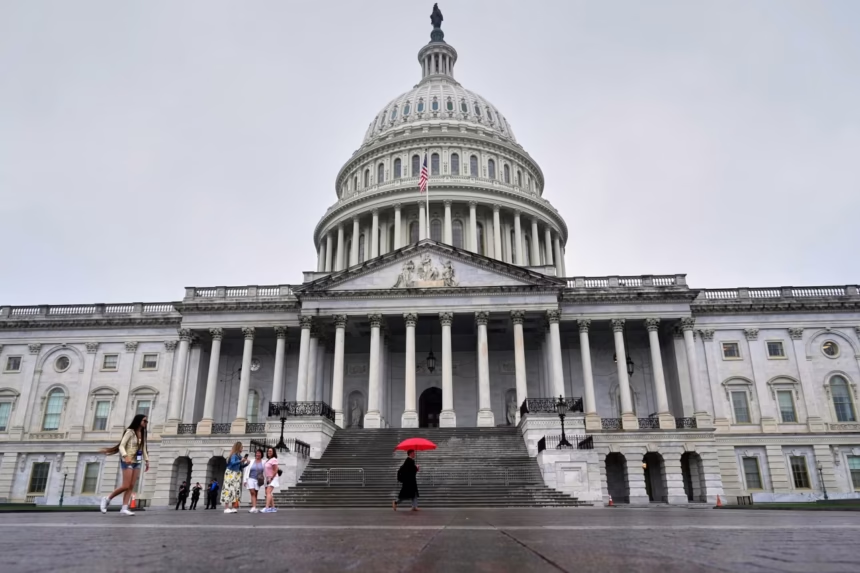GENIUS Act Receives Bipartisan Approval in Landmark Vote for the Digital Asset Industry
In a groundbreaking development for the cryptocurrency sector, the US Senate has officially passed the long-anticipated stablecoin regulation bill, dubbed the GENIUS Act. The bill passed with strong bipartisan support, earning a 68-30 vote, and now heads to the House of Representatives for final approval before reaching President Donald Trump’s desk for signature into law.
What Does the Stablecoin Bill Cover?
Stablecoins are cryptocurrency tokens pegged to stable assets, typically the US dollar, designed to maintain a consistent value for easier transactions and trading. This new legislation introduces the first-ever comprehensive regulatory framework for these digital assets, setting clear rules for their issuance and reserve backing.
If signed into law, the GENIUS Act will require:
- Stablecoins to be backed by liquid assets, such as US dollars or short-term Treasury securities
- Issuers to publicly disclose monthly reports of their reserves
- Strict regulatory oversight of entities issuing stablecoins, with new licensing requirements
- Transparency standards to protect consumer funds and financial stability
Supporters of the bill argue that these measures will bring much-needed clarity and security to the rapidly growing stablecoin market, allowing stablecoins to be used more widely for payments, cross-border transfers, and mainstream financial transactions.
A Milestone Moment for Crypto Regulation
Andrew Olmem, managing partner at Mayer Brown and former White House economic advisor, called the bill “a major milestone”, emphasizing that it finally establishes a federal regulatory regime for stablecoins, which have long operated in legal grey zones.
The bill’s advancement comes after years of lobbying by the crypto industry, which spent more than $119 million (approximately ₹1,027 crore) backing pro-crypto candidates and advocating for regulation that would unlock stablecoin adoption in the US financial system.
Trump Administration’s Growing Crypto Influence
President Trump has increasingly positioned himself as a champion of the crypto industry. His administration has actively sought to overhaul US crypto policies since the 2024 election, including:
- Appointing industry-friendly regulators
- Hosting crypto leaders at the White House
- Creating the Digital Assets Council led by Bo Hines
- Dropping SEC lawsuits against major exchanges such as Coinbase, Kraken, and Binance
With stablecoin regulation now a key priority, Trump’s Council of Advisers on Digital Assets has expressed urgency to get the bill passed before August 2025.
Democratic Opposition Raises Concerns Over Loopholes
While the bill passed with bipartisan support, several Democrats raised serious concerns. Senator Elizabeth Warren argued the bill lacks sufficient:
- Anti-money laundering safeguards
- Restrictions on foreign stablecoin issuers
- Prohibitions against large tech companies issuing private stablecoins
Warren called the bill “worse than no bill at all”, citing risks to national security, financial stability, and consumer protection. She also accused lawmakers of enabling Trump’s personal crypto ventures, including his controversial $TRUMP meme coin and ownership stake in World Liberty Financial.
Key Provisions Still Under Negotiation
Though the Senate bill has advanced, it may undergo additional changes when reviewed by the House. The Conference of State Bank Supervisors (CSBS) called for critical modifications, warning that the bill could improperly expand the powers of uninsured crypto banks to offer money transmission or custody services across state lines without sufficient oversight.
Brandon Milhorn, President of CSBS, emphasized, “This bill needs further safeguards to protect financial stability and state regulatory authority.”
What This Means for the Crypto Industry
The passing of the GENIUS Act represents the most significant step yet in integrating crypto assets into the regulated US financial system. If passed into law:
- Stablecoin adoption could accelerate dramatically across payment processors and fintech platforms
- Crypto could gain broader acceptance among institutional investors
- The US could establish itself as a global leader in crypto regulation
However, the debate over privacy, government control, and financial risks tied to stablecoins remains far from settled. The next few months will be crucial as the House revises the bill and political tensions over Trump’s personal involvement with the crypto sector continue to rise.
Stay updated with the latest crypto regulatory updates as this historic legislation moves toward final approval.
Read the full Reuters report here.


